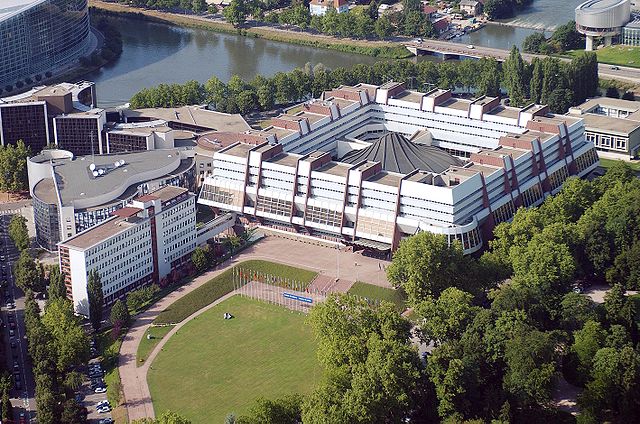Europe asks Russia, What about heterosexual propaganda?
Colin Stewart is a 45-year journalism veteran living in Southern…

“What about ‘propaganda of heterosexuality?’ ” asks a commission of European legal experts in their newly adopted opinion about legislation to ban so-called “propaganda of homosexuality,” which has been variously passed or is under consideration in Russia, Ukraine and Moldova.
Nigel Warner, adviser from ILGA-Europe to the Council of Europe, reports here about how the European commission of legal experts, called the Venice Commission, has shredded the idea of prohibiting so-called “propaganda of homosexuality.”
In those experts’ opinion, the proposals are ambiguous, discriminatory, incompatible with international human rights standards. Warner reports:
The Venice Commission – full name, the European Commission for Democracy through Law, is the Council of Europe’s advisory body on constitutional matters. Its role is to provide legal advice to its member states and, in particular, to help states wishing to bring their legal and institutional structures into line with European standards and international experience in the fields of democracy, human rights and the rule of law. It is regarded as highly authoritative. The Commission has 59 member states: the 47 Council of Europe member states, plus 12 other countries (Algeria, Brazil, Chile, Israel, Kazakhstan, the Republic of Korea, Kyrgyzstan, Morocco, Mexico, Peru, Tunisia and the USA). Its individual members, constitutional law experts, are appointed by the member states.
The Opinion concludes that:
· The provisions under consideration are not formulated with sufficient precision to satisfy the requirement “prescribed by law”. The terms used are too ambiguous.
· The justifications used for prohibition such as public morality, values and traditions, protection of minors, fail to pass essential necessity and proportionality tests required by the European Convention on Human Rights.
· The prohibition concerns solely “propaganda of homosexuality”, as opposed to “propaganda of heterosexuality”. The lack of any reasonable and objective criteria to justify this difference in treatment amounts to discrimination on the basis of content of speech about sexual orientation.
The Venice Commission adds that “homosexuality as a variation of sexual orientation, is protected under the ECHR and as such, cannot be deemed contrary to morals by public authorities…. On the other hand, there is no evidence that expressions of sexual orientation adversely affect minors, whose interest is to receive relevant, appropriate and objective information about sexuality, including sexual orientations.”
Finally, in an important closing paragraph, it challenges the whole rationale for these “propaganda for homosexuality” laws:
“80. On the whole, it seems that the aim of these measures is not so much to advance and promote traditional values and attitudes towards family and sexuality but rather to curtail non-traditional ones by punishing their expression and promotion. As such, the measures in question appear to be incompatible with “the underlying values of the ECHR”, in addition to their failure to meet the requirements for restrictions prescribed by Articles 10, 11 and 14 of the Convention.”
So its final conclusion comes as no surprise:
“81. In the light of the above, the Venice Commission considers that the statutory provisions prohibiting “propaganda of homosexuality”, are incompatible with ECHR and international human rights standards. The Venice Commission therefore recommends that these provisions be repealed.”
Of course, the Russian authorities were fully aware of these conclusions when their “propaganda for non-traditional sexual relationships” law was pushed through the Lower House of the federal parliament last week. And no doubt the timing of the debate, before publication of the Opinion, is not a coincidence.
Still, the Opinion will be a valuable tool in the continuing battles against “propaganda for homosexuality” laws.
Related articles
- Russian Parliament Passes Bill 436-0 – Banning Homosexual Propaganda From Younger Citizens. (politicalvelcraft.org)
- Russia passes strict ‘gay propaganda’ law (76crimes.com)



Many thanks for posting this. However, may I point out that the Venice Commission is an entity of the Council of Europe, not of the European Union? The picture of the European Parliament is therefore not relevant to the news.
Thanks, Lloyd. I’ve changed the photo.
Apparently I posted that in too much of a rush. And am more of a Europe-clueless American than I knew.
— Colin Stewart, editor of this blog